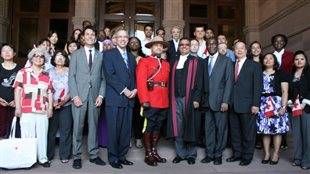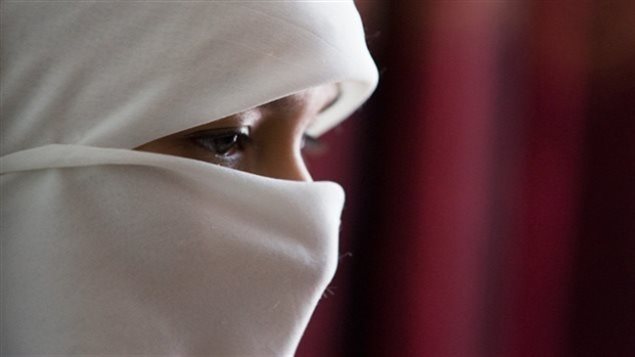The federal government has lost its appeal to overturn a court ruling that allows a Muslim woman to cover her face at citizenship ceremonies.
The government wanted the Federal Court of Appeal to reverse a decision by a Federal Court judge that its policy on face coverings during the oath-taking is unlawful.
In that decision, the judge ruled that the government policy, introduced in 2011, violated the Citizenship Act, which states citizenship judges must allow the greatest possible religious freedom when administering the oath.

Within days, Prime Minister Stephen Harper announced the government would appeal.
On Tuesday, a Federal Court of Appeal panel in Ottawa dismissed the government appeal.
The case began with a lawsuit from Zunera Ishaq, who moved to Ontario from Pakistan in 2008 to join her husband.
A devout Muslim, she agreed to remove her niqab for an official before writing and passing her citizenship test two years ago.
However, she refused to take part in a citizenship ceremony because she would have to show her face.
The case sparked bitter political debate in the House of Commons between the federal parties.
Ishaq, who is a permanent resident of Canada, has yet to take the oath because when the court agreed to hear the government’s appeal, it issued a temporary stay on the lower court’s ruling.
Ruling from the bench, the three Federal Appeal Court justices said Tuesday, they wanted to proceed quickly so Ishaq can obtain her citizenship in time to vote in the Oct. 19 federal election.
She says she is looking forward to voting.








For reasons beyond our control, and for an undetermined period of time, our comment section is now closed. However, our social networks remain open to your contributions.